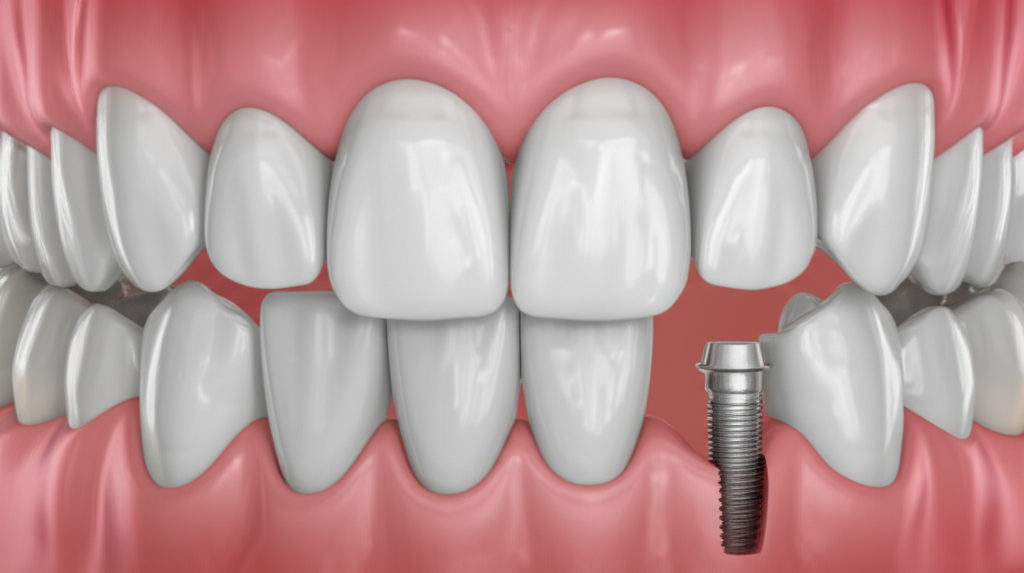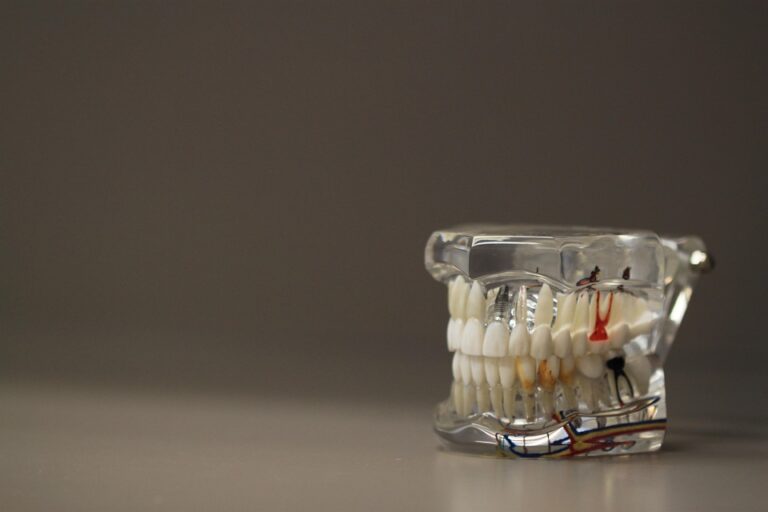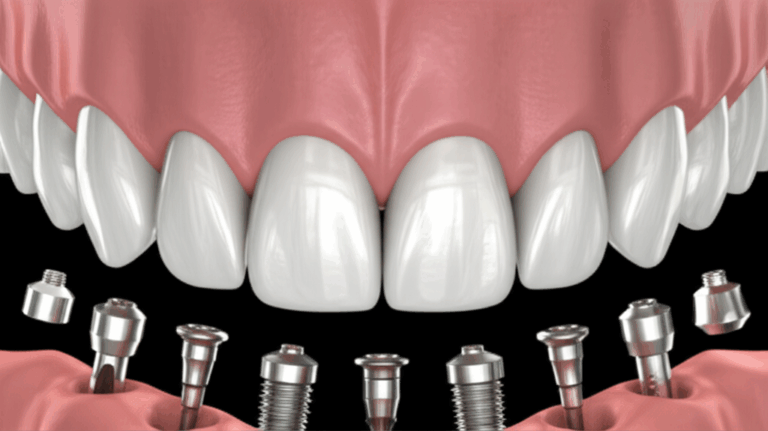
What Are Dental Implants For? Understanding Their Purpose, Benefits, and Uses
That sudden, awful feeling—standing in front of the mirror, feeling that empty space where your tooth once was. Maybe you lost it from an accident, gum problems, or just getting older. If you want to get your smile and normal chewing back, you’ve probably heard about dental implants. But what are dental implants really for? Are they just another new dental thing, or do they actually help bring back your health and confidence?
If you’ve wondered about this, you’re not alone. Most people don’t want a denture that moves around or a bridge that harms other good teeth. It’s only fair to get clear, honest answers about dental implants—whether you’re missing one tooth or lots of them. Let’s make it simple and easy to understand.
In This Article
- What Exactly Are Dental Implants?
- Key Problems Dental Implants Solve
- How Dental Implants Work: The Simple Science
- When and Why Dental Implants Are Used
- Implants vs. Other Tooth Replacement Options
- Who Is (and Isn’t) a Good Candidate?
- Takeaways: Your Path to a Healthier, Happier Smile
What Exactly Are Dental Implants?
Let’s start simple. Dental implants aren’t just “fake teeth.” A dental implant is like a strong, small post (usually made of titanium or zirconia) that a dentist or surgeon puts straight into your jawbone, taking the place of a lost tooth root. Over a few months, your bone grows tightly around it. This is called osseointegration (pronounced “oss-ee-oh-integration”)—and it’s why implants stay in so well. Once it heals, a fake tooth, bridge, or denture is put on the implant, looking and working like a real tooth.
Dental implants:
- Fill gaps from missing teeth by acting like new roots.
- Hold up anything from a single crown to a whole row of teeth.
- Bring back chewing, talking, and confidence.
- Help keep your jawbone and face from changing shape.
It’s not an exaggeration to call dental implants the best choice in modern tooth replacement. But why do dentists say they’re so good? And what real-life problems do they solve?
Key Problems Dental Implants Solve (Why Choose Them?)
Dental implants aren’t just something “nice”. They solve big, annoying problems in daily life. Here’s what they do for you:
1. Replacing Missing Teeth For Good
No matter if you’re missing one tooth, a few, or all of them, implants can help.
- Single Tooth Replacement: If you lost one tooth, an implant fills the gap and leaves the other teeth alone.
- Several Missing Teeth: Implants can support bridges for many missing teeth, giving you a strong, lasting smile.
- Full Arch Replacement: A system like “All-on-4” uses just a few implants to hold up a whole row of teeth. No more empty spaces or dentures that slide—just a smile that feels and works real.
2. Stopping Jawbone Shrinking and Bone Loss
Here’s something most people don’t know: If you lose a tooth, the bone in that spot starts to shrink—this is called “bone resorption.” Over time, this can make your face look sunken and older.
Dental implants are the only replacement that actually stimulates the jawbone, just like a real root would. This helps:
- Stop up to 90% of bone loss after losing a tooth.
- Keep your jaw strong and the right shape.
3. Bringing Back Chewing and Speaking
Missing teeth or loose dentures mean you can’t chew well. Hard apples or steak? Forget it. Also, gaps can make talking hard—you might slur your words or whistle while speaking.
Dental implants bring back up to 80-90% of your old chewing power. With strong support, you can eat what you want and talk clearly without worry.
4. Keeping Your Face Looking Normal
Teeth don’t just help with eating—you need them to support your cheeks and lips. If teeth and bone disappear, your face can look caved in.
Implants help keep your face looking right by:
- Saving the bone underneath.
- Supporting a full, natural-looking smile.
5. Making Loose Dentures Stable
Old-style dentures just sit on your gums, so they can move or even fall out when you eat, laugh, or talk. It’s embarrassing—but you don’t have to live with it.
With a few dental implants, you can lock down a denture so:
- No more sliding or clicking.
- You can eat more things comfortably.
- You don’t have to feel nervous about your teeth in public.
How Dental Implants Work: The Simple Science
Dental implants aren’t magic—they’re just really smart dental technology. Here’s how it all fits together:
1. The Implant Post (New Root)
Your jawbone is like soil. The implant post is like the root of a plant, put straight into the bone. Usually made from titanium or zirconia, it’s strong and safe for your body. Over time, your bone grows around it in a process called osseointegration—locking it in tight. That’s why it feels just like the real thing.
2. The Abutment (Connector)
When the post is healed and solid, the dentist puts on a small connector, called an abutment. This piece joins the hidden post to the tooth you see above the gums.
3. The New Tooth (Crown, Bridge, or Denture)
Finally, a custom-made artificial tooth (or set of teeth) is attached. It can be a:
- Dental crown: Replaces one tooth.
- Bridge: Replaces a few teeth in a row.
- Denture: For when you’re missing all your teeth.
Dental labs—from china dental lab teams to top digital dental lab workers—make these fake teeth to match your own smile.
End result? A tooth replacement that feels so natural, you might forget which tooth it is!
When and Why Dental Implants Are Used (Who Needs Them?)
Dental implants are flexible—they’re not the same for everyone, but they help lots of people:
1. For Just One Lost Tooth
Losing one tooth doesn’t seem like a big deal, but it can mess up everything:
- Other teeth move and tilt.
- The bone under it starts to break down.
With an implant, you fill the space and keep everything in place—without having to grind down the teeth next door (which is needed for a regular bridge).
2. For Several Missing Teeth
Bridges or partial dentures are an option, but they lean on other teeth for support. Implants act as their own anchors—saving your remaining teeth and being stronger for the long run.
3. For No Teeth Left (Full Arch Fix)
If you’ve lost every tooth on the top or bottom, implants can support a whole denture (“implant-supported denture” or “All-on-4”) that won’t fall out or make noise.
4. For People With Dentures That Don’t Fit Well
If your current dentures are loose and give you sore spots or trouble speaking, implants can turn a loose, removable denture into something solid and comfortable. Sometimes just two to four implants are enough to really change how you eat and talk.
5. For Avoiding Problems With Other Choices
Regular bridges mean cutting down good teeth, and most dentures just sit on the gums, which makes bone shrink faster and can be annoying. Implants protect your other teeth and keep your jawbone healthy for years.
Implants vs. Other Tooth Replacement Options
So, are dental implants always the “best” choice? Here’s how they stack up against common choices.
Dental Bridges
- Bridges fill a gap by attaching a fake tooth to the teeth beside it.
- Pros: Faster to get, costs less at the start.
- Cons: You have to shave down nearby teeth, which can hurt them. Over time, bridges don’t stop bone shrinking under the missing tooth.
Removable Dentures
- Pros: Cheaper, no surgery, don’t mess with other teeth.
- Cons: Might slip, cause sore gums, make eating and talking harder, and can make the jawbone shrink even faster.
Dental Implants
- Pros: Stand on their own, keep bone healthy, can last a lifetime, with over 95-98% long-term success. Feel and work like real teeth. Easy to clean and look after.
- Cons: Surgery is needed, upfront cost is higher, and people with thin bones might need extra treatment.
Bottom line: Implants are the closest thing to getting your real teeth back. They can also save money and hassle later on, since they hardly ever need to be replaced.
For more on ways to fix teeth, check out crown and bridge lab info for bridges and crowns, or look at dental care tips for a clean, healthy mouth.
Who Is (and Isn’t) a Good Candidate for Dental Implants?
Most healthy adults—who are willing to look after their teeth—can think about dental implants. But some things make a difference:
Good Candidates Usually Have:
- Enough bone in their jaw (or are ready to get extra bone put in if needed).
- Healthy gums, without active gum disease.
- Overall good health. Some health problems like badly controlled diabetes or immune issues can make it riskier.
- A plan to keep their mouth clean and get regular dentist checks.
Implants Might Not Work Well If:
- You smoke a lot and won’t quit (smoking makes implants more likely to fail).
- Serious health problems mean you can’t have surgery or heal after.
- You have untreated gum troubles or active infection right now (but sometimes this can be fixed first).
Quick tip: Even if you’re not sure, the best way to learn is to check with a dentist, oral surgeon, or gum specialist. They can use digital 3D scans or cone beam CT pictures to check your bone and plan what you need.
Takeaways: Your Path to a Healthier, Happier Smile
Let’s make it really clear. Dental implants…
- Replace missing teeth for many years, whether you’re missing one or all.
- Keep your jawbone safe and stop your face from getting an “old” look.
- Give you back full use—eat, talk, and laugh like normal.
- Make dentures stable—so no more wobbling or pain.
- Leave your other teeth alone, so you don’t damage what’s still healthy.
- Bring back your confidence and a smile that looks natural.
Dental implants stand out because they’re the only replacement that becomes part of your body—growing into the bone, feeling real, and letting you live life as you want. If you’re tired of temporary fixes, or you want the best for your mouth—implants might be just what you need.
What’s Next? Take the First Step
If you’re still reading, you’re off to a great start. Try this next:
- Write down your top questions or worries (like: “How long is the process?” or “Will I need extra bone?”).
- See a good dentist for a checkup about your options, prices, and what would work best for you.
- Look into the work being done by a trusted implant dental laboratory to see the latest materials and ways implants are made.
Most important—don’t put things off. If you ignore missing teeth or bone loss, it just gets worse. The faster you act, the more choices you get.
Frequently Asked Questions About Dental Implants
Do implants hurt? Most people say getting a dental implant hurts less than they thought. Numbing medicine (and sometimes a bit to help you relax) keeps you comfortable. You’ll probably have some mild soreness after, but it usually goes away with normal pain pills.
How long do dental implants last? If you look after them, the implant post itself can last your whole life. The crown (the part you see) might need to be replaced after 10-15 years.
Are implants pricey? Yes, they cost more up front. But think of them as an investment—they can save you from extra work and costs with things that don’t last. Many dental offices let you pay over time.
How do I care for implants? Just brush and floss like normal teeth. Visit your dentist as they recommend—a well-kept implant is very strong and lasts.
Final Thoughts: Clarity and Confidence for Your Smile
You deserve a fix that really works—not just a quick patch, but something that gets to the root of the problem. Dental implants are more than just “false teeth”—they give you comfort, health, and confidence again.
If you’re not sure, keep in mind: dentistry is better than ever, with more choices, great technology, and higher success rates. Your best smile might be closer than you think.
Clear answers, solutions that last, and a partner to help you look after your mouth—what more could you ask for? If you’re ready to start, just reach out to your dentist.
Key Takeaways:
- Dental implants can be a forever fix for missing teeth.
- They protect your bone, keep your smile, and let you eat and talk the way you want.
- Most healthy adults can get them, but only a dentist can say for sure.
- The sooner you start, the more choices you’ll have for your mouth.
For more on looking after your teeth—including info about teeth health and the science behind new tooth fixes—check out our easy guides. No confusing words, just real answers.
Smile bright—good days are ahead.








